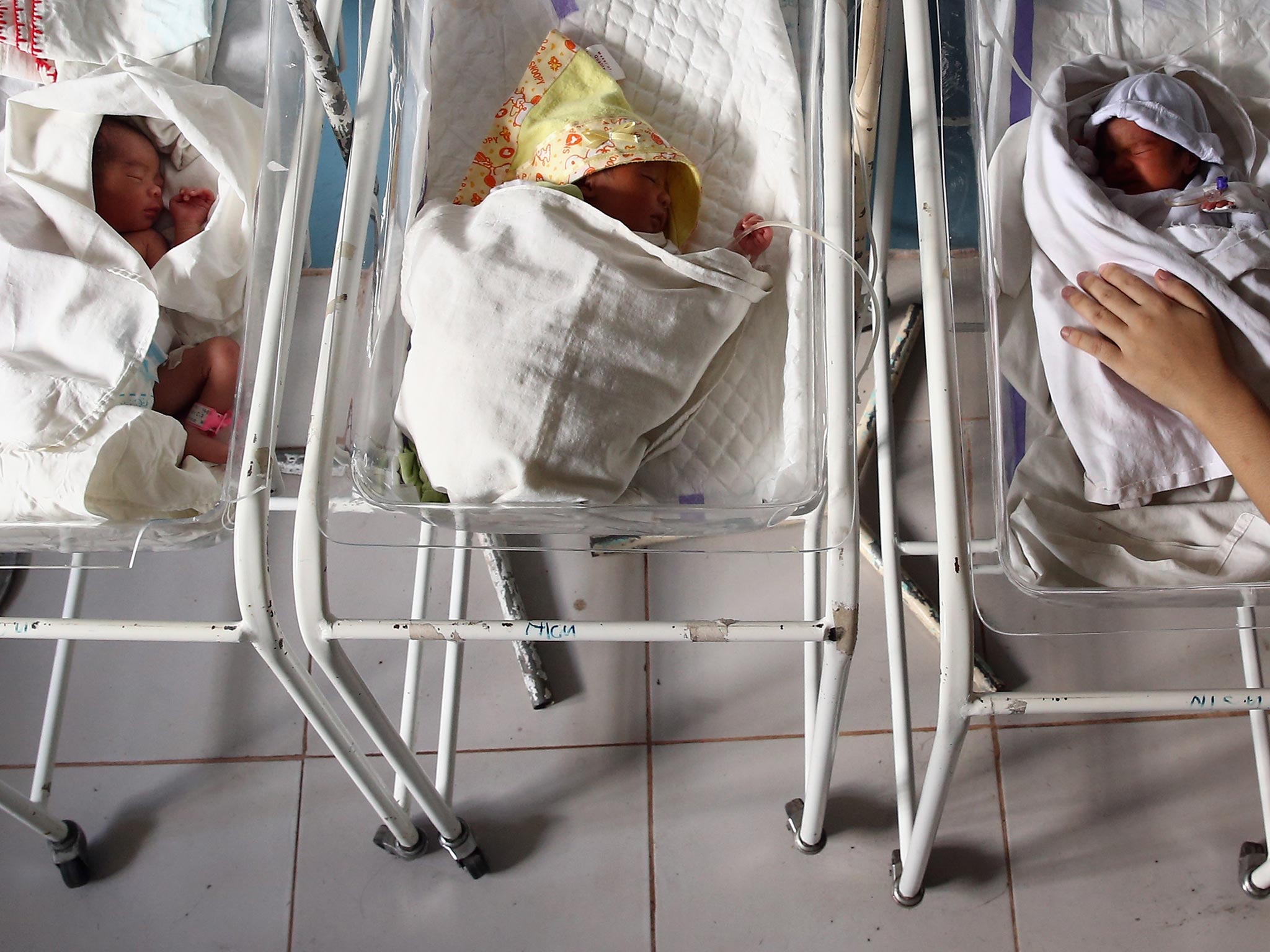NHS fertility treatments allow two-mum families to reach record levels
More lesbian couples having babies than ever

Your support helps us to tell the story
From reproductive rights to climate change to Big Tech, The Independent is on the ground when the story is developing. Whether it's investigating the financials of Elon Musk's pro-Trump PAC or producing our latest documentary, 'The A Word', which shines a light on the American women fighting for reproductive rights, we know how important it is to parse out the facts from the messaging.
At such a critical moment in US history, we need reporters on the ground. Your donation allows us to keep sending journalists to speak to both sides of the story.
The Independent is trusted by Americans across the entire political spectrum. And unlike many other quality news outlets, we choose not to lock Americans out of our reporting and analysis with paywalls. We believe quality journalism should be available to everyone, paid for by those who can afford it.
Your support makes all the difference.Record numbers of lesbian couples are becoming parents through fertility treatment, official figures show. The number of two-mum families jumped by more than a third in 2012, according to the Human Fertilisation and Embryology Authority (HFEA).
The increase coincides with reforms which made it possible for gay couples to receive fertility treatment on the National Health Service. It also reflects the societal changes brought about by the introduction of civil partnerships in 2005.
Women in same sex relationships conducted 766 cycles of IVF in 2012, up 36 per cent on 2011. Similarly, the number of lesbian couples using artificial insemination to conceive was up 20 per cent on 2011, with 1,271 cycles recorded.
The increase follows several legal breakthroughs for gay couples wanting to conceive. In May 2012 new guidelines for fertility treatment made it possible for gay couples and women over 40 to receive IVF on the National Health Service. Legal changes in 2009 also meant lesbians could no longer be discriminated against for trying to produce children without a father.
Natalie Gamble, a leading fertility lawyer, said: “The law used to say that before offering treatment clinics had to consider the welfare of any child being born without a father. I’ve got two kids with my same sex partner and in 2001 to 2002 it was almost impossible to find a clinic that would do it, but we did find one in the end.
“In 2009 when the law changed it made it very clear that people should be given equal access to treatment. It also meant that lesbian couples conceiving together are both recorded as the legal parents automatically. Now with same sex marriage, everything is moving towards a more open and tolerant society.”
Gay rights campaigners said they were delighted with the figures, published less than 48 hours before same sex couples can conduct legal marriages for the first time. Ruth Hunt, acting chief executive of Stonewall, said: “Lesbian, gay and bisexual people can provide loving and stable homes for children and we’re delighted to see more and more couples realising that they can start a family of their own.”
Overall, more than 47,000 women underwent 62,000 cycles of IVF in 2012, a slight increase on the previous year. Donor insemination increased by 8.8 per cent to 4,453 cycles of treatment. The figures also showed for the first time that woman over 45 are now using donor eggs more often than their own.
An HFEA spokesman said: “The Register provides a window into not just fertility treatment per se, but it also indirectly into modern society. While it is not possible from the statistics alone to explain the rise in same-sex female couples having fertility treatment, it seems to be in keeping with the more open and accepting society that we have become over the last 20 years; especially so since 2009, when the rules around legal parenthood changed in favour of same sex couples.”
Join our commenting forum
Join thought-provoking conversations, follow other Independent readers and see their replies
Comments